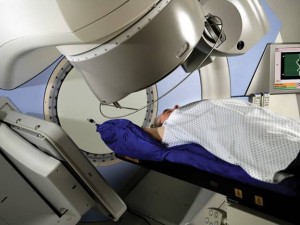 Many people fear radiation therapy treatments because they do not understand the process or the real risks and benefits. Lack of information and misinformation can cloud your judgment and influence your decision-making capabilities negatively. Read the following answers to the top 5 most frequently asked questions regarding radiation therapy. Then speak with your radiation oncologist to make a balanced and informed decision.
Many people fear radiation therapy treatments because they do not understand the process or the real risks and benefits. Lack of information and misinformation can cloud your judgment and influence your decision-making capabilities negatively. Read the following answers to the top 5 most frequently asked questions regarding radiation therapy. Then speak with your radiation oncologist to make a balanced and informed decision.
Here are the top 5 FAQs about radiation therapy:
What Does It Do? Radiation therapy is a type of treatment that can accomplish a few different roles in your cancer treatment. For example, your radiation oncologist might use it to completely destroy your cancer cells and to eliminate it entirely. But sometimes it is used as part of a palliative therapy treatment in order to simply shrink the tumor and relieve pain. Other times, it is used after chemotherapy in order to reduce your risk of cancer returning in the future. Check with your doctor to determine the role that radiation therapy will play in your treatment.
Will It Hurt? Radiation therapy treatments are completely painless. Your radiation oncology team will work together to provide you with a seamless, effective treatment option without any pain. A small sample of patients report a small tingling or warming sensation but the vast majority of patients don’t feel anything at all. Afterward, the treated area might be a little sensitive and night be more prone to irritation.
What Are the Side Effects? Your radiation oncologist will customize your radiation therapy treatment to your own personalized needs. As a result, side effects will vary from person to person. Some people encounter little or no side effects while others suffer much more pronounced effects. The biggest issue is potential damage to surrounding organs that are very close to the treated area. For example, men with prostate cancer might experience bladder problems while women receiving pelvic radiation might encounter fertility issues. Check with your doctor to find out what areas might be at risk for you.
Is it safe? Patients are often scared of radiation therapy treatments because they are invisible to the naked eye. But radiation oncologists use advanced equipment and sophisticated computers to control your treatment. Through this careful process, your radiation oncology team will be able to destroy cancer cells or slow tumor growth, all with careful oversight and an accurate delivery system.
Will I Be “Radioactive?” Any possibility of radioactivity will depend entirely on your type of radiation therapy. If you are receiving external-beam radiation therapy, then you won’t have to worry about radioactivity because there is no radiation left behind once the treatment is over. However, if you are receiving internal radiation therapy, then there is the possibility that some radiation will be released afterward. Those who receive internal radiation therapy should learn about necessary precautions to decrease other peoples’ exposure.
